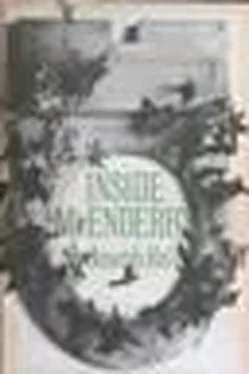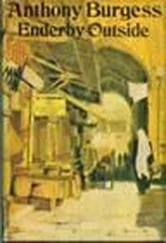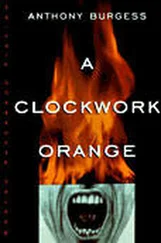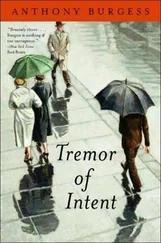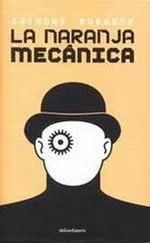October, November, brought a whiff of foreboding. This was getting past a joke. He had money enough still, of course, but less and less to do with his time. Walking through the sea-deafening deserted streets, overcoat-collar round his ears, trying to crank up a poem, returning to hopelessness, stew, Mrs Bamber insisting on coming up to his attic, sitting there, talking about her own past redolent of oyster-bars and Yates's Wine Lodge.
If, he vowed at Christmas, if he were given some sort of token of assurance that he would be able to start writing again, then, when his money ran out, he would willingly take some futile occupation or other, becoming a part-time poet, keeping alive for his Muse.
Towards the end of January he awoke to a morning clamped in frost, a poem singing in his ears. Thank God, the relief. He wrote the gnomic telegraphic message down and spent the morning refining it to a final shape:
You being the gate
Where the army went through
Would you renew the triumph and have them decorate
The arch and stone again?
Surely those flowers are withered, the army
Now on a distant plain.
Reading it, he saw, his hair bristling, that it was a private message, a message from her to himself.
But some morning when you are washing up,
Or some afternoon, taking a cup
Of tea, possibly you will see
The heavens opening and a lot
Of saints singing, with bells swinging.
But: then again, possibly not.
He had felt a clammy glair of sweat settle on him, his diaphragm start to liquefy. A poem of farewell.
In March came publication of The Circular Pavane. Reviews followed: "… Pleasant and lucid verse in the tradition…"; "Mr Enderby has lost none of his old cunning; it is a pity, however, that we see no signs of new cunning, new directions. It is a cunningly blended mixture, but it is very much the mixture as before…"; "… One remembers with a sigh the old lyrical perfection. It is a relief to turn to the work of two young Oxford poets…" And one that was surely by Rawcliffe: "Mr Enderby is undoubtedly enough of a realist not to regret the passing of the lyric gift. It cannot last for ever, and with Mr Enderby it has lasted longer than with most. Many of his contemporaries have already elected for the dignified silence of remembered achievement, and one may predict that Mr Enderby, after this not unexpectedly disappointing volume, will join their cloistral seclusion…" In Fem there was, of course, no review.
Enderby had spent April brooding over a pain in his chest. In May, now, this month, three days ago, he had decided to go to a doctor. The doctor, after palpation and auscultation, had more or less decided that nothing was really wrong but, to be on the safe side, had sent Enderby to the hospital for radiography. But, before that, with "nothing wrong" in his ears, Enderby had sat down in his warm attic to write out a list of possible ways to die:
Slash wrists in warm bath
Overdose of sedative
Hang from picture rail in dining-room
Jump in sea from jetty
This was early summer, and Mrs Bamber's house had a fair number of early summer visitors, mostly, as far as Enderby could judge from the noise, teams of galloping children ineptly driven by whoaing but disregarded young parents. It would not be right, Enderby thought, to make his suicide a public affair. It was no way to start a holiday morning to find a corpse swinging with its tongue out at the cornflakes laid the night before, or else dreaming cold in a bath of cold red ink. Too public, of course, to upset anyone might have been the jump from the jetty at the end of Central Pier, but some swimmer, bored already with his holiday, might have splashed too swiftly to the rescue. The overdose was best: clean and quiet, clean and quiet, by something something and dreamy something. Kingsley, jocular Christian.
Enderby, non-Christian stoic, climbed the vanilla-coloured steps of 17 Butterworth Avenue. The front door was open and on the hat-stand were buckets and spades, the smell of feet and sand in the whole dark seaweedy hall. All the guests were out, perhaps at Son of the Beast from Outer Space, but from her kitchen Mrs Bamber sang, the merry widow of a tram-driver, a song smelling of oysters and ruby port. Mounting the stairs, Enderby was suddenly transfixed by a line from, he thought, Ulysses, which seemed to him, with his lethal dose in his pocket, to be the most poignant line (though it was not really a line-only, so far as he could remember, a splinter of Bloom's interior monologue), the most pregnantly regretful line he had ever heard:
… And lie no more in her warm bed.
He shook his head as images clustered round it, images he was no longer capable of translating into words and rhythms: the horses under starter's orders, the champagne tent, the sun on the back of the neck, the omelette made with a hundred eggs and a bottle of Napoleon brandy, life.
… And lie no more in her warm bed.
Enderby climbed higher, climbed to the top, where there was only a roof between him and the sun. This garret of his was, like the sea, warming up for the summer. He entered and sat on his bed, panting after the climb. Then his stomach, living its own life, decided it was hungry, so Enderby put to warm on the gas-ring the remains of a simple stew. While it bubbled, he turned over and over the sizeable bottle of aspirin he had bought: he had read, or heard, that a hundred should be enough. Mrs Bamber, he felt sure, would be efficient at coping with the unexpected corpse of Enderby: she was a Lancashire woman, and Lancashire people rather enjoyed death. It would, anyway, be a clean corpse lying, jaw dropped as in astonishment at being dead, between the sheets. (He reminded himself to effect, as far as was possible, a total evacuation of his body before making it a corpse.) The holiday guests would not be disturbed; the Chief Constable and the Town Clerk would want no publicity; everything would be done quietly at night, and then cornflakes would be shuffled on to plates for the morning. Enderby now sat down, with something like appetite, to his last supper, a thin but savoury viaticum. He felt excited, as though after supper he were going to see a film that everybody had been talking about and the critics had highly praised.
Enderby was in his pyjamas. It was still light, a May evening, and he had a fugitive impression of being a child again, sent to bed while the life of day was beating strongly without. He had washed his feet and scrubbed his dentures, scoured his few pots and pans, eaten a piece of chocolate left over from some weeks back, and poured water from the jug on the wash-stand into a clean milk-bottle. (He had no tumbler, and would need a good long draught to speed the aspirin down.) Now, with the cottonwool stopper removed and the tablets clinking discreetly, the aspirin bottle began to dramatize itself, drawing evening light from all angles, becoming almost grail-like, so that the hand that held it shook. Enderby carried it over to his bed, and it made a tiny dry castanet-noise all the way. From the bed, which he now entered, he could look down on Mrs Bamber's back-yard. He dredged it hungrily, squinting, for symbols of life, but there were only a dustbin, a cardboard box full of cinders, dandelions growing up from the flag-cracks, an old bicycle discarded by Mrs Bamber's son, Tom. Beyond were three-storey houses with bathing costumes drying on window-sills, beyond again the sea, above all a primrose sky. "Now," said Enderby aloud.
One shaking hand shook out a shaking palmful of aspirin. He gave the white seeds to his mouth like a golly-wog money-box feeding in a penny. He drank water from the milk-bottle, still shaking. Aspen, aspirin. Was there a connexion?
Читать дальше
